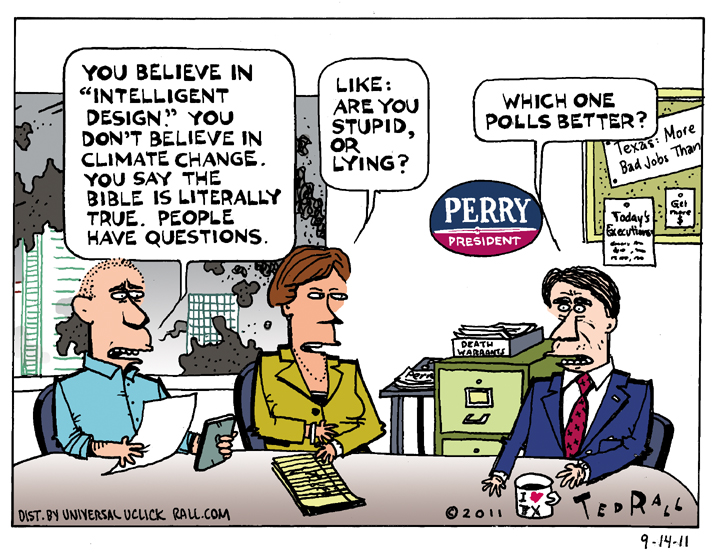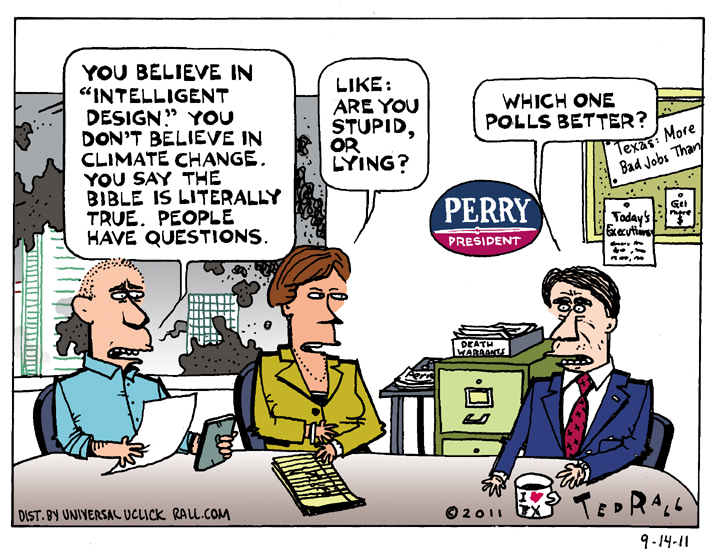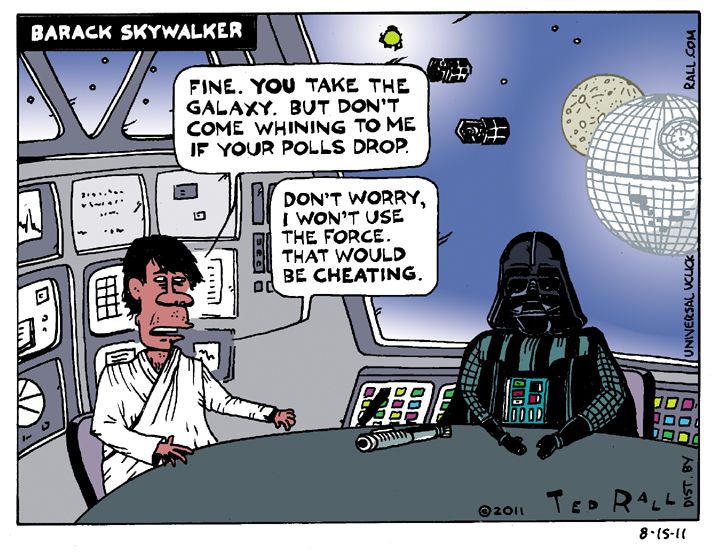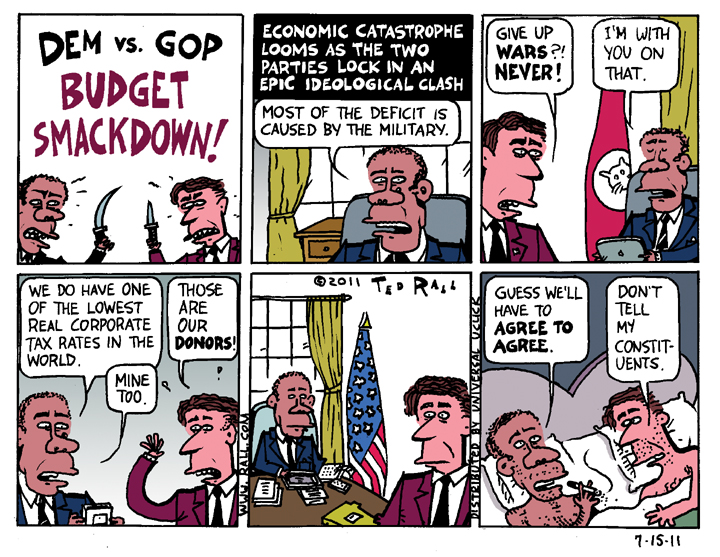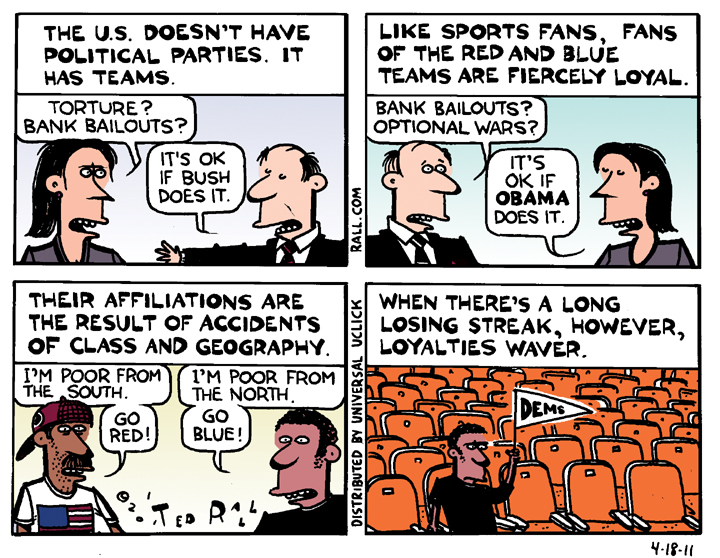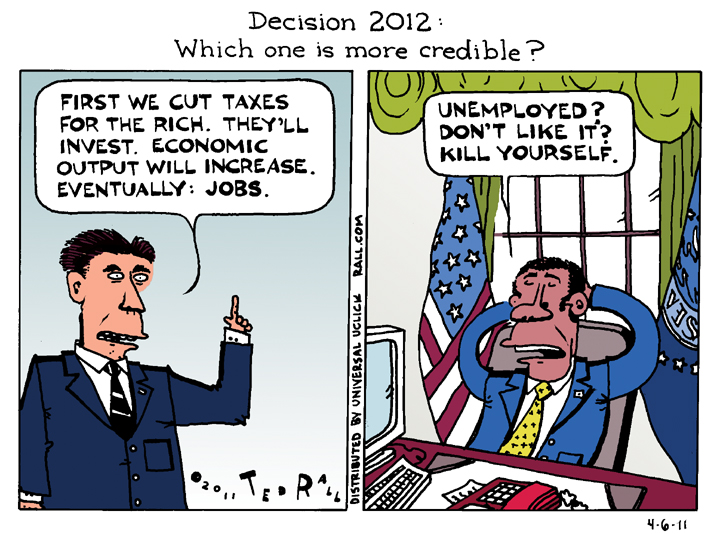Obama babbles his way to irrelevance.
SYNDICATED COLUMN: Down and Out at 1600 Pennsylvania Avenue
What I Would Do If I Were Obama
Jobs, jobs, jobs. Throughout the presidency of Barack Obama, Americans have been preoccupied with jobs. Unemployed people need work. The underemployed need more work. The employed want salaries that go up instead of down.
The rich are worried too. The Depression of 2008-? is killing their stock portfolios.
Most presidents struggle to find the pulse of the people. Trapped in the D.C. bubble, they try to find out what voters want. Obama was lucky. He didn’t have to do that. The U.S. was in the midst of an epic economic collapse in January 2009, and has been ever since. It’s the only issue that everyone, rich to middle to poor, cared about. It still is.
In this single-issue environment, any idiot could have been a successful president. All Obama had to do was express sympathy and understanding while announcing a bunch of jobs initiatives.
Not hard.
Weirdly, though, Obama has focused on everything else except jobs: healthcare, gays in the military, gays getting married, more war against Afghanistan, new war against Libya, secret wars against Somalia and Yemen, the dreary showdown over taxes, budget cuts and the federal debt ceiling.
According to the latest ABC News/Washington Post poll, Obama’s approval rating is down to 39 percent. The crappy economy—and Obama’s inaction—is the simple cause.
“What Happened to Obama?” Drew Westen asked in a much-passed-around New York Times op-ed. It used to be just me. Now everyone sane agrees that Obama’s presidency has failed.
This is my favorite part of Westen’s postmortem: “Those of us who were bewitched by his eloquence on the campaign trail chose to ignore some disquieting aspects of his biography: that he had accomplished very little before he ran for president, having never run a business or a state; that he had a singularly unremarkable career as a law professor, publishing nothing in 12 years at the University of Chicago other than an autobiography; and that, before joining the United States Senate, he had voted “present” (instead of “yea” or “nay”) 130 times, sometimes dodging difficult issues.”
Westen is nicer than I am. He left out the fact that Obama had an undistinguished career as a U.S. Senator.
Is Obama a secret pawn of evil plutocrats? Does he suffer a character flaw alluded to in Westen’s piece, that he doesn’t know who he is?
Maybe. But I don’t think so. I think eight years of George W. Bush caused Americans to make a mistake. Obama was calm, so they assumed he was wise.
Obama is calm. He’s calm that it’s hard to tell if he’s sentient. But that doesn’t make him smart. Based on his record before and after becoming president, there’s a better-than-even chance that he’s not very smart.
Let’s be logical. Let’s assume that appearances don’t lie—that Obama doesn’t lose a wink of sleep over the fact that he’s presiding over a disaster that makes 9/11 look like a joke.
Let us further stipulate, for the sake of argument, that Obama isn’t stupid. That he’s merely another cynical and/or corrupt politician. If nothing else, Mr. Cynical (But Intelligent) Dirtbag ought to care about getting reelected.
Right?
If I were in Obama’s shoes, and I had any brains, if I wanted to turn those lousy poll numbers around, I’d hold press conferences to talk about jobs every day. I’d talk about jobs until the media was sick of it. Then I’d do it some more.
I’d spend two or three nights every week couchsurfing with families who were suffering, cameras rolling as I pretended to care about their silly problems with mean bosses and evil health insurers.
Most importantly, I’d set up next year’s television attack ads. I wouldn’t let a single week go by without proposing some piece of legislation related to creating jobs, alleviating the problems of the jobless, and increasing wages.
I’d send Congress huge publics-works bills. I’d ask them to hire millions of unemployed people to work for federal agencies. I’d push for higher unemployment benefits, payments that don’t expire until you find a job. Tax breaks for companies that hire. Tax deductions for those that give raises. Penalties for outsourcing jobs. Keep the Bush tax cuts, but only for the poor and middle class.
Let the Republicans kill my ideas. All the better for my 2012 ad buy! “Republicans voted against new jobs for Americans 22 times. Against helping homeowners keep their houses 15 times. Republicans: They just don’t care about you.” You get the idea.
Of course, a president can accomplish a lot by executive order. Remember that story about how Apple had more ready cash than the U.S. Treasury? Since America obviously needs the money more than Steve Jobs, Obama could have nationalized it and given it to the states in order to bolster their unemployment compensation funds.
American voters are so defeated and disgusted that they no longer demand a president like FDR or LBJ who actually fights for them. They’ll settle for one who goes through the motions.
The question for Obama and his advisors is: Are they smart enough to pretend to care about the only issue that matters to voters?
(Ted Rall is the author of “The Anti-American Manifesto.” His website is tedrall.com.)
COPYRIGHT 2011 TED RALL
SYNDICATED COLUMN: The Evil of Two Lessers
Two-Party System Is Not Democracy
We get the government we deserve.
Don’t get mad at the politicians! It’s your/our fault. You/we elected them.
Most Americans accept these aphorisms. Yet they are lies—lies that distract us from the fact that our political system is a farce. Really, we should get rid of this phony two-party “democracy.” And we will. In the meantime, we ought to ignore it.
The two-party system made simple:
Two worthless scoundrels are on the ballot.
If you vote for one of them, a worthless scoundrel will win.
If you don’t vote, a worthless scoundrel will win.
It’s a pretty unappealing sales pitch. How did it last 200 years?
The two-party system, a political mutation unanticipated by the Constitution and dreaded by the Founding Fathers, mainly relies on the “lesser of two evils” argument.
Next year, for example, many liberals will hold their noses and vote for Obama even though he has not delivered for them. They will do this to try to avoid winding up with someone “even worse”: Michele Bachmann, Mitt Romney, etc.
Conservatives will do the same thing. They will vote for Michele Bachmann, Mitt Romney or whomever—even though they know full well they won’t come through with smaller government or a balanced budget—because Obama is “even worse.”
The two-party system is a sick game. Many citizens, realizing this, opt out by not voting. Others resort to negative voting.
In 2008 one out of three Republican voters told pollsters they were voting against Obama, not for McCain. Out in five Democrats voted against McCain, not for Obama.
A quarter of all votes cast in 2008 were “negative votes.” Thirty-eight percent of voters in the 2010 midterm elections crossed party lines from D to R “to send a message.”
To “get the government they deserve,” as master curmudgeon H.L. Mencken asserted, we would have to have a wide choice of options on the ballot. Two is pathetic.
Two parties isn’t even a facsimile of democracy.
Would you shop at a store that only offered two books? Two kinds of cereal? Two models of computers? Two brands of computer?
What about third parties? The Dems and Reps conspire to block the Greens, Libertarians, etc. with insurmountable obstacles. Minor parties can’t get campaign financing, ballot access, media coverage, or seats at presidential debates. So they rarely win.
“With a single elected president if you’re going to have a chance to win the states, which are all awarded on a winner-take-all basis, again you don’t have a chance,” John Bibby, University of Wisconsin professor and co-author of the book, “Two Parties—Or More? The American Party System” told PBS in 2004. “The incentive is to form broad-based parties that have a chance to win in the Electoral College.”
The argument that we, the people, are somehow to blame for the failings of “our politicians” is absurd. Even partisans of the two major parties are substantially dissatisfied with the nominees who emerge from the primary system.
Politics is not what happens on the first Tuesday after the first Monday in November. Real politics is the process of arguing about how we want to live. In America that happens over dinner with our families, over drinks with our friends, over the water cooler at work (if you still have a job).
What happens on Election Day is a circus, a farcical distraction meant to siphon away the vitality of real politics.
Real politics is dangerous. Real politics, as we saw in Cairo’s Tahrir Square, can actually change things.
The two-party system is a twisted con based on fear. If you don’t vote for Party A then Party B, which is slightly more evil, will win. If “your” Party A wins, all you get is the dubious, incremental pseudo-victory of somewhat less suckiness. But Party A gets something infinitely more valuable: political legitimacy and the right to claim a mandate for policies that you mostly dislike.
“Hey, you elected them.”
“You got the government you deserve.”
Not at all.
It’s a terrible, lopsided bargain. You get little to nothing. They use your vote to justify their policies:
No jobs.
One war after another.
Wasting your tax dollars.
Corruption.
More pollution.
(Notice: I didn’t specify which party. Compared to the vast spectrum of possible politics from left to right, which encompasses such ideologies as communism, socialism, left libertarianism, right libertarianism, fascism, etc., the Dems and Reps are more similar than different.)
Until there’s a revolution we’re stuck with these jokers. But that doesn’t mean we have to pay attention.
(Ted Rall is the author of “The Anti-American Manifesto.” His website is tedrall.com.)
COPYRIGHT 2011 TED RALL



